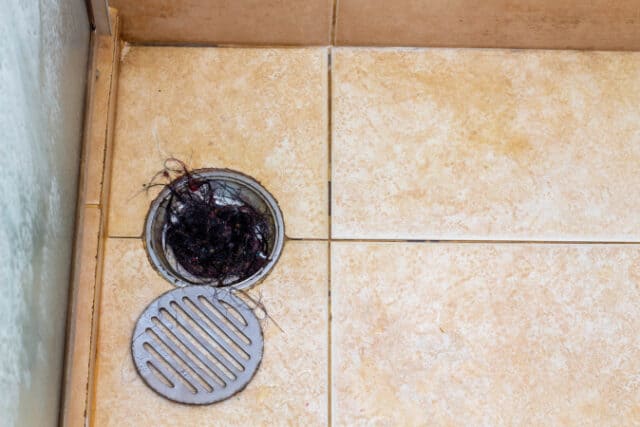
If you try to prevent clogged drains, your drainage system will last longer. If you understand how to unclog a drain, you may be able to avoid a pricey service call from a plumber. Drain clogs are a common problem with home plumbing, especially during the summer when people take more showers.
Hair that enters the drain is frequently the source of the problem, but it is not the only one. Your drainage system will last longer if you know how to avoid clogged drains.
Suggestions for prevention
The most straightforward approach to keep drains clear is to limit what you put down them. Food, coffee grounds, and grease should not be washed down the drain. Instead of using the garbage can, place leftovers in the dumpster or compost pile.
Fill a container with liquid grease that can be sealed. Once it has cooled, throw it away or take it to a recycling site.
Keep soapy residue and hair out of the toilets. Cover your bathtub and bathroom drain with a mesh screen or a perforated shower drain cover. Both will collect the hair while allowing the water to pass through.
To make a shower drain hair catcher, you can use stainless steel, polyurethane, or a combination of the two materials. Another way to keep hair from clogging the bathroom drain is to replace the showerhead or bathtub stopper with one that has a built-in screen.
Comb your hair before bathing or showering
Most drain clogs are caused by organic debris, such as food, oil, or hair. Fortunately, some microbes in your sewers decompose organic trash. You can avoid obstructions by introducing the bacteria into your sewers, where they will consume organic garbage. Bacteria for drain cleaning are available in powdered and liquid forms.
Bacterial drain cleaning germs are non-corrosive, so they will not damage pipes or clash with the germs in your sewer tank. Drain and trap cleaning is available at drug shops and hobby stores. Follow the instructions on the packaging. Add it when pipes will not be used, such as right before everyone goes to bed, to allow the bacteria to function.
Cover the drain with a towel if you bathe your pet in the bathroom or tub. This removes stray hair and keeps it from clogging the bathtub drain. Even a regular shower drainage hair catcher can become clogged by the volume of hair shed by a dog or cat during a wash.
When flushing, use caution. Flushing heavy, stringy, or thick things can cause clogs. Toilets are designed to hold both toilet tissue and human waste.
How to Clear the Clog
Consider the following ways to remove hair and other clogs before calling a plumber:
- Check the drain strainer. If you find hair or other stuff, remove the drain blocker, wash it, and reinstall it.
- Use the plunger. Cover the drain with the plunger to drive water up or down the pipelines, sealing the sides. If the obstruction is in the basin, start flowing two inches of water through it while using the plunger.
Make use of a plumbing snake
If a toilet is still stuck after you’ve tried the pusher, use a plumber‘s snake (also called a drill). The helical point of the snake holds hair and other impediments, allowing you to draw them out. It shoves it down the sewer as it bends and coils around curves.
Drain cleaning
Fill a five-gallon bucket with water and dump it into the toilet while flushing to keep the massive main drain line clear. Pour hot water into the basins and tub and allow it to drain.
Do not flush personal care goods. It may be tempting to flush many personal care items. After all, there’s a large drain hole, and things usually drain without issue. The dental string may go down the drain, but it doesn’t mean it will reach the main drainage. It could become entangled in your pipes and cause a clog.
Aside from adding an unnecessary load to the wastewater treatment plant, most of these materials take a long time to degrade and can clog the drain. Please, no rubbish in the toilet. It benefits both the ecosystem and your pipes.
When you have many overnight visitors or a large party, the drainage system always appears to clog at the worst possible time. Even if you can’t stop every obstruction, you can take steps to avoid the majority of drain clogs and unpleasant backups.












